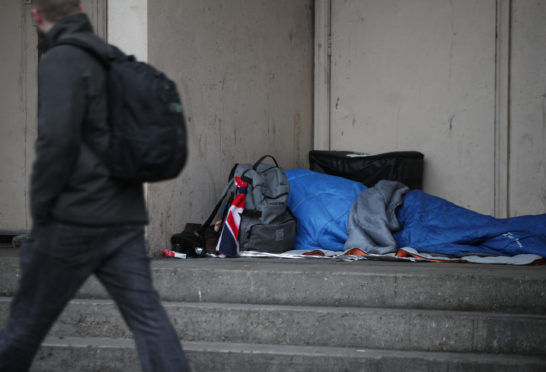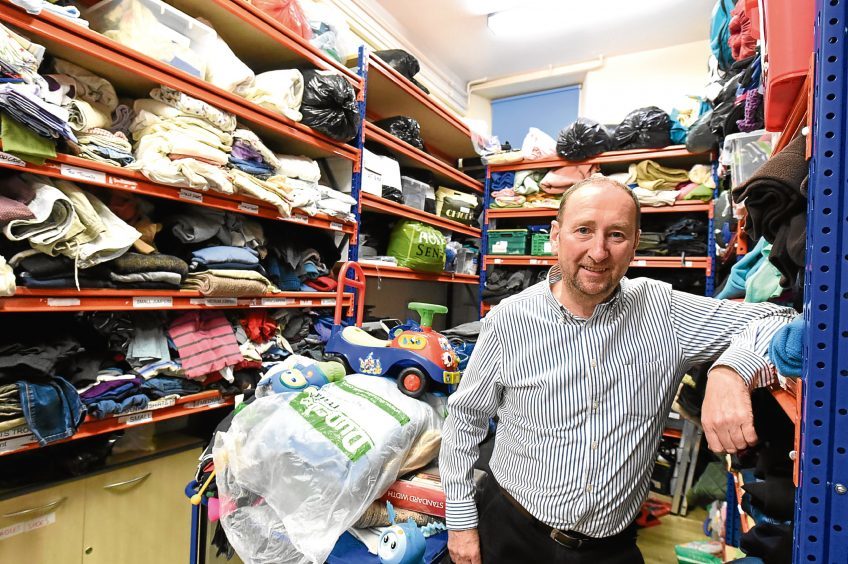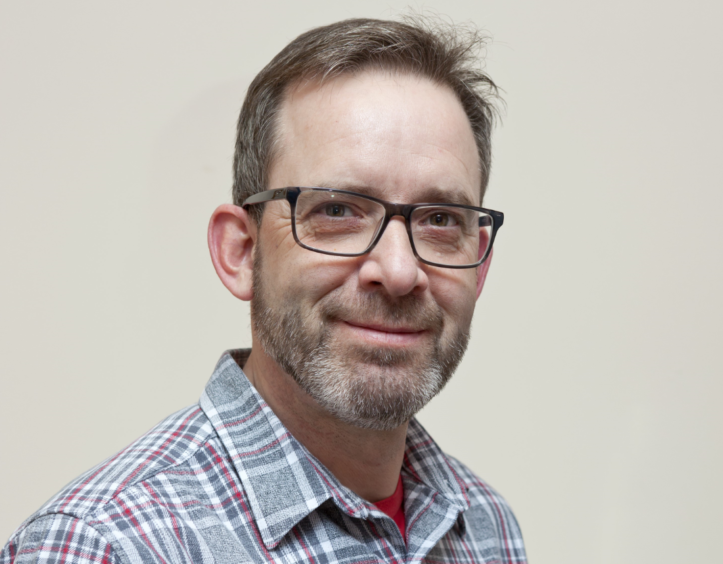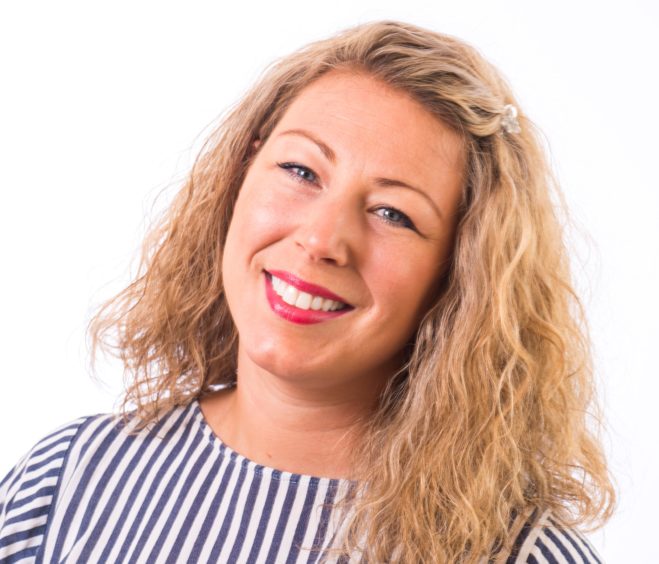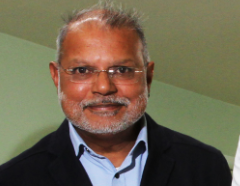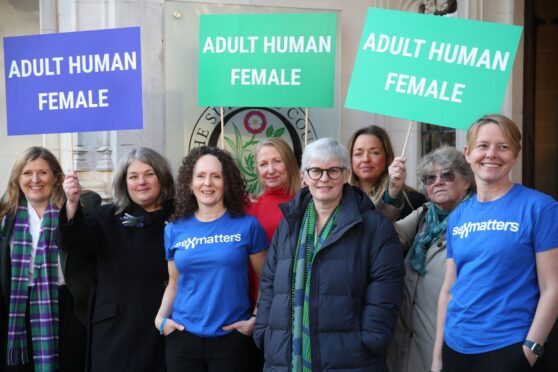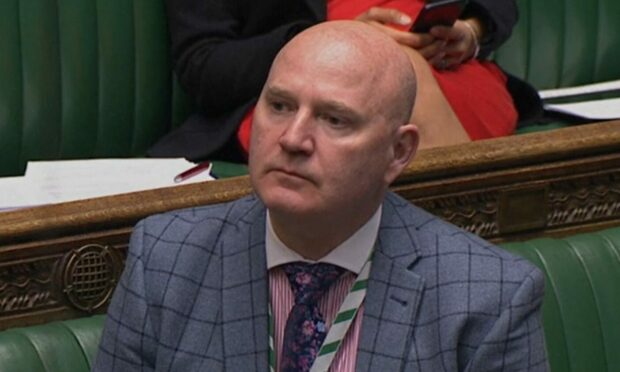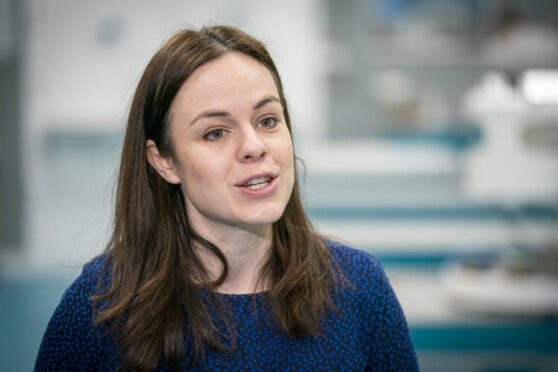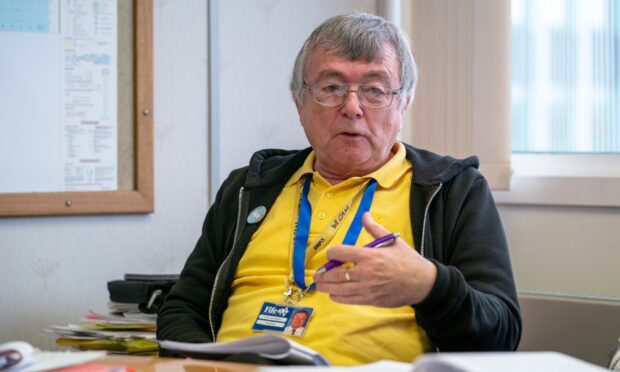Homeless charities across the north-east and Tayside have said care must be taken to avoid a situation where people are swept into poverty and homelessness as a result of the ongoing Covid-19 pandemic.
Urgent steps taken during Covid-19 mean rough sleeping is almost “non-existent” on the streets of Scotland, homeless charities across the country have claimed, but there are concerns there could be a spike in the numbers of people presenting as homeless if people lose their jobs in the months to come.
During a virtual session of Holyrood’s equalities and human rights committee, Claire Frew, policy and impact manager at Homeless Network Scotland, said latest estimates show there are currently fewer than 30 people sleeping rough across Scotland as a result of moves to open up hotels to house the homeless.
Mike Burns, CEO of Aberdeen Cyrenians said the charity has also been working with the council and the third sector to get people into temporary accommodation “very quickly”, along with making use of a hotel in the city.
However, the charity said there has already been an increase in the numbers of people presenting as homeless across Scotland, exacerbated by their personal situations during the Covid-19 pandemic.
He said: “I know we are getting more homeless presentations across Scotland at the moment.
“We’re starting to see more of the fall-out of relationship breakdowns, people running into debt and also seeing a spike in the number of young people in situations where their homes are starting to break down.
“It’s fair to say everybody across Scotland is anticipating an increase in homelessness but it remains to be seen whether that will be temporary or long-term, which depends on the economy and employment.”
We’re starting to see more of the fall-out of relationship breakdowns, people running into debt and also seeing a spike in the number of young people in situations where their homes are starting to break down.”
Mike Burns, CEO of Aberdeen Cyrenians.
The number of people claiming Universal Credit benefit in the north-east has soared by more than 7,000 in the space of a month, new figures released by the Department of Health for April have shown.
The figures are “concerning”, Mr Burns said.
He added: “We would hope every one of those people could get back into a job but if they can’t then that could result in homelessness.”
Jane Bruce is CEO of Social Bite, a charity that operates a cafe in Aberdeen which provides both food and jobs to the homeless and usually feeds around 40 to 50 people a day in the city.
However, during the pandemic, it has issued around 750 bags of food a day, not just to the homeless but also those struggling to make ends meet and put food on the table.
She said: “There is evidence of more mothers looking for food for children and people who have recently lost work.
“The concern is that picture could become worse in a few months’ time.”
Social bite, along with 18 other organisations including Shelter Scotland and Aberdeen Cyrenians, has formed a collective called Everyone Home, which delivered a plan to tackle homelessness to the Scottish Government last month.
The measures they have put forward include prioritising prevention, creating as much housing capacity as possible and ending avoidable evictions and the threat of illegal evictions.
There is evidence of more mothers looking for food for children and people who have recently lost work.”
Jane Bruce, CEO of Social Bite.
The charity’s CEO said: “What we’re trying to do is agitate and push for there to be routes out of the homeless situation so that people aren’t going back to street homelessness.
“It’s also highly likely there will be redundancies (once the government’s furlough scheme ends) and there’s a very good chance that people will find themselves in difficulty.”
Mark Thomson, manager of Shelter Scotland’s Aberdeen Community Hub, said the local authority has increased the amount of temporary accommodation available using B&Bs, hotels and some mainstream housing to ensure people have somewhere they can stay inside during the pandemic.
He added: “We must never go back to having people sleeping on our streets.
“Our hub is still busy defending people’s right to a home and we have concerns about what happens when emergency measures to protect people from eviction stop.
“The next phase must be managed carefully to avoid a situation where people face rent arrears and are swept into poverty and homelessness.
“The long-term solution must mean building more social housing and ensuring everyone has their housing rights enforced by being able to access advice and representation through Shelter Scotland or other advice bodies.”
The next phase must be managed carefully to avoid a situation where people face rent arrears and are swept into poverty and homelessness.”
Mark Thomson, manager of Shelter Scotland’s Aberdeen Community Hub.
Meanwhile, Michelle Harrow, manager of the Shelter Scotland Dundee Community Hub, said Dundee City Council has also responded “well” to the immediate need to get people into accommodation but stresses these measures are “only temporary”.
She said: “People can’t go on living in B&Bs or hotels forever and there must be a managed transition to ensure people move on into permanent tenancies and no one goes back to sleeping rough.
“Rough sleeping is only the tip of the iceberg with thousands more homeless but living in temporary furnished flats or overcrowded or unsuitable housing.
“This health crisis has exposed the shortage of safe, secure and affordable homes and for a long-term solution we must put building new homes for social rent at the heart of the recovery from the pandemic.”
There is potential for an increase in the numbers of people struggling to pay their rent or mortgage and a “real threat of homelessness”, according to Shirish Patel, chief executive of the Dundee Survival Group.
However, he stressed that the city currently has “sufficient” temporary accommodation for homeless people, and the crisis does offer a “good time to reflect” on how to improve going forward.
He said: “As we come out of Covid-19 and lockdown, we’re working closely with those with a history of homelessness and looking to provide them support on a more consistent basis.
“It’s a good opportunity to have a more positive dialogue with people that have suffered homelessness in the past.”
Claire Frew told politicians on Holyrood’s equalities and human rights committee that both national and local government had committed “significant funding” to make use of empty hotel rooms across the country at the outbreak of Covid-19.
She said: “It’s important to note that intervention in itself meant that rough sleeping is almost now non-existent on the streets of Scotland.
“What is there is temporary but we’ve taken a massive step forward. One of the latest estimates in the country is that there are fewer than 30 people who were potentially sleeping rough.
It’s important to note that intervention in itself meant that rough sleeping is almost now non-existent on the streets of Scotland.”
Claire Frew, Policy and Impact Manager, Homeless Network Scotland.
“It just shows you what you can do with a massive intervention and just the urgency behind it.
“We’ve made massive progress in a very short period of time and the focus now is we can’t lose it, we cannot lose the progress we’ve made.
“But if you were to walk the streets now you’d see almost nobody sleeping on the streets, which has been quite an achievement.”
